Are you interested in purchasing high-quality semiconductors? If so, you should head straight to TSMC. Many of you might be aware of what TSMC is, but for those who are confused, TSMC is the acronym for Taiwan Semiconductor Manufacturing Company.
TSMC is one of the most renowned brands that manufacture a variety of semiconductors with the help of its skilled workforce. TSMC dominates the market, possessing 55% of the entire market share.
As a semiconductor manufacturer, TSMC has reached heights that no other company has achieved. This is why we have decided to conduct a PESTLE Analysis of TSMC today.
Before proceeding further and conducting the PESTLE analysis, let's delve into the history of how the largest semiconductor manufacturing company came into existence.
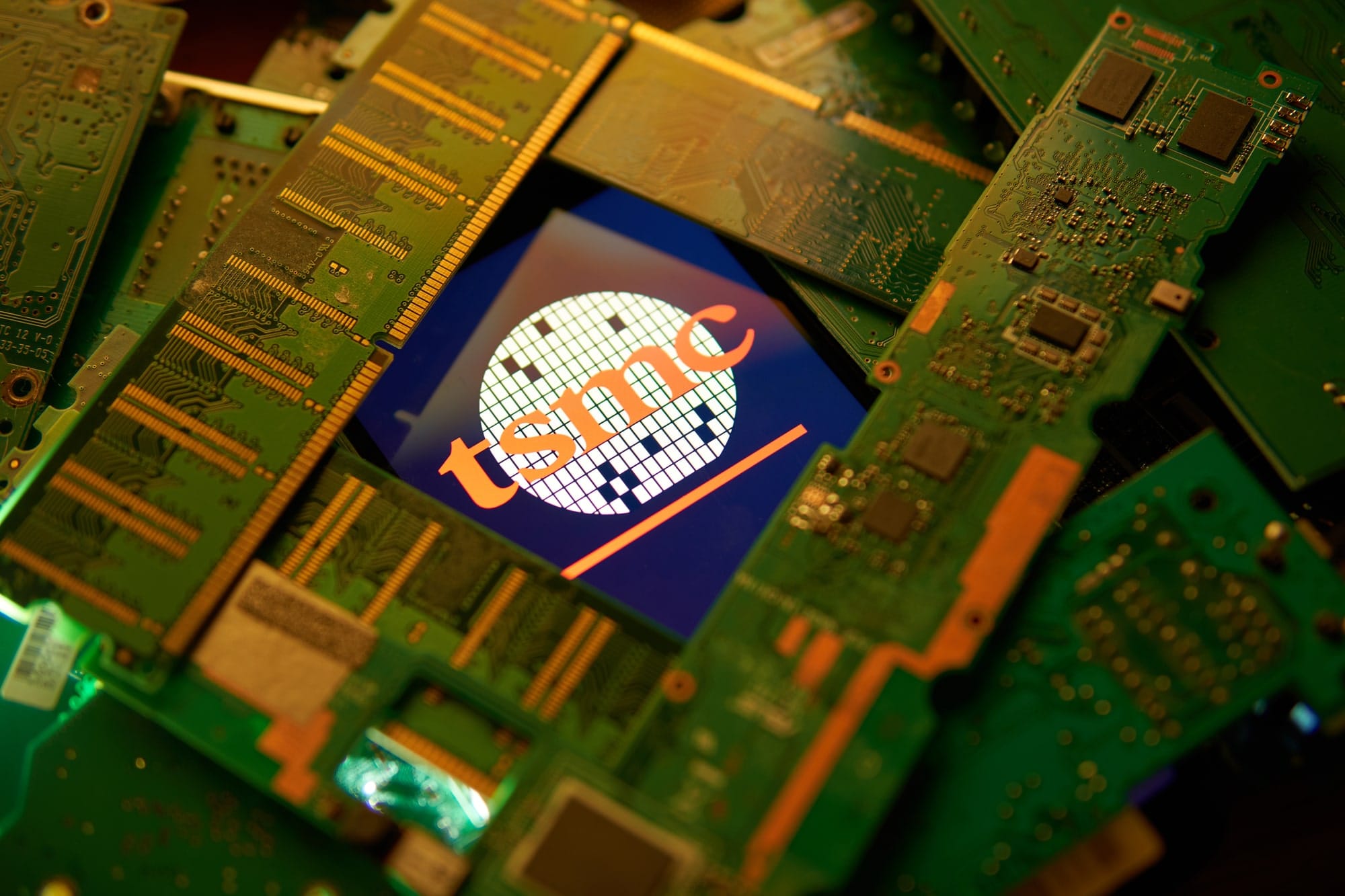
TSMC was founded by a man named Morris Chang in 1987. Before that, no specific company focused solely on semiconductor manufacturing.
The company developed its manufacturing capabilities and upgraded its technology in the early years. As a result, TSMC soon started manufacturing 6-inch wafers using 4-micron technology.
At that time, TSMC's operations were ahead of their time, and the company gained immediate recognition. As the company gained more recognition, it continued to improve its technology.
Soon, TSMC adopted 0.5-micron technology. Later, in the 2000s, the company scaled down its manufacturing nodes to 0.18-micron. TSMC continued to grow at a rapid pace.
The company expanded its operations within Taiwan to increase its market share and also increased its international presence. Over the years, TSMC continued to advance technologically.
In 2008, TSMC introduced a 40nm node. Thanks to such technological advancements, many companies were attracted to TSMC. Companies like Apple, NVIDIA, and AMD became customers of TSMC.
In the following years, TSMC continued to dominate the market. In 2011 and 2014, the semiconductor manufacturer introduced 28nm and 16nm nodes. The company further innovated and developed a 5nm node in 2020.
The 5nm node of TSMC gained much popularity since it had 80% more transistor density than the 7nm Ryzen 3000s. TSMC continued to invest in R&D, allowing it to keep innovating.
The demand for TSMC's products continued to grow, prompting the semiconductor manufacturing company to increase production by setting up more manufacturing plants.
Currently, TSMC operates in various countries in different parts of the world, which greatly contributes to the company's substantial revenue. In 2022, the company experienced a 28.74% growth in its revenue compared to the previous year, generating $73.67 billion. TSMC employs 73,090 employees worldwide to manage its operations.
To conduct a PESTLE analysis of TSMC, let's first explain what PESTLE analysis is.
A PEST analysis is a tool that helps businesses examine how various external factors impact their operations. This PESTLE analysis will examine how different political, economic, environmental, social, technological, and legal factors impact TSMC.
Now, let's proceed further and look at how different political factors impact the operations of TSMC.
Political Factors That Impact TSMC
Political factors are related to the political environment of a country and the global political scenario. This section will examine how different political factors affect TSMC.
TSMC conducts business with both China and the USA, and Taiwan greatly influences both countries. Therefore, TSMC's operations are impacted whenever there is political tension between China and the USA.
Due to political turmoil between China and the USA, TSCM faces export complications and deals with tough regulations. The political tension between these countries adversely affects TSMC's operations.
Government support is essential for any company. TSMC's operations can also be significantly influenced by government support. For example, if the government reduces tax rates in the manufacturing sector, this will positively impact TSMC, leading to increased semiconductor production. Conversely, if government support is withdrawn, TSMC might reduce production and generate less revenue.
Additionally, Taiwan's political stability also impacts TSMC. A stable political environment leads to higher demand for TSMC's products, while political instability may hinder production due to disruptions caused by political riots and input delays.
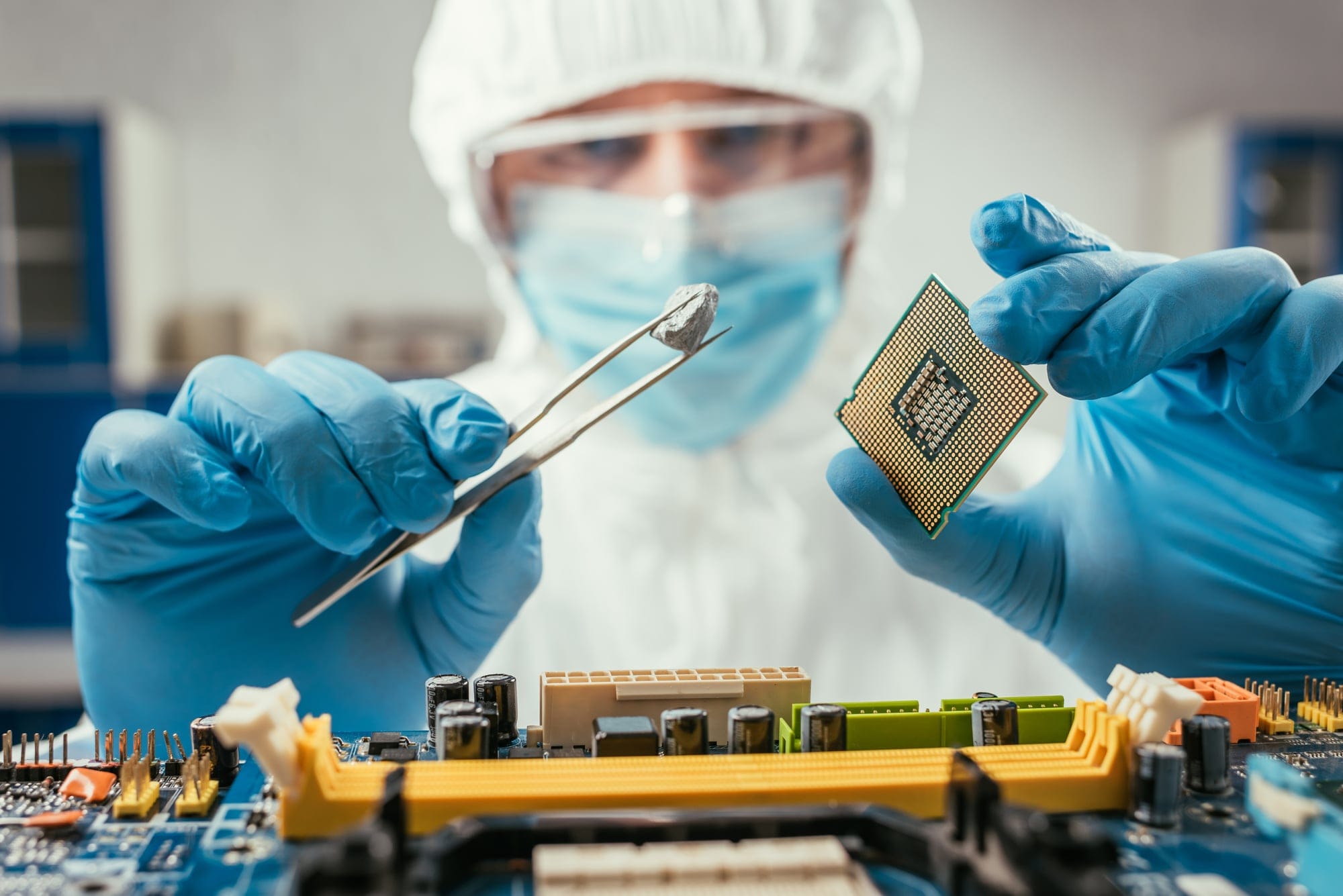
Economic Factors That Impact TSMC
Economic factors are related to the economy and affect a company's operations. In this section, we will examine how various economic factors impact TSMC.
TSMC not only sells products to local companies but also to international giants such as Apple. Global economic conditions greatly impact TSMC. Poor global economic conditions can lead to reduced demand for gadgets containing TSMC's semiconductors, affecting the company's revenue.
Exchange rates also significantly affect TSMC. Fluctuations in exchange rates impact the costs and revenue of TSMC, influencing its profitability. Stable exchange rates are ideal for predicting costs and revenue.
Interest rates also impact TSMC, as companies often take bank loans to expand or set up manufacturing plants. Rising interest rates can increase borrowing costs, potentially affecting TSMC's growth.
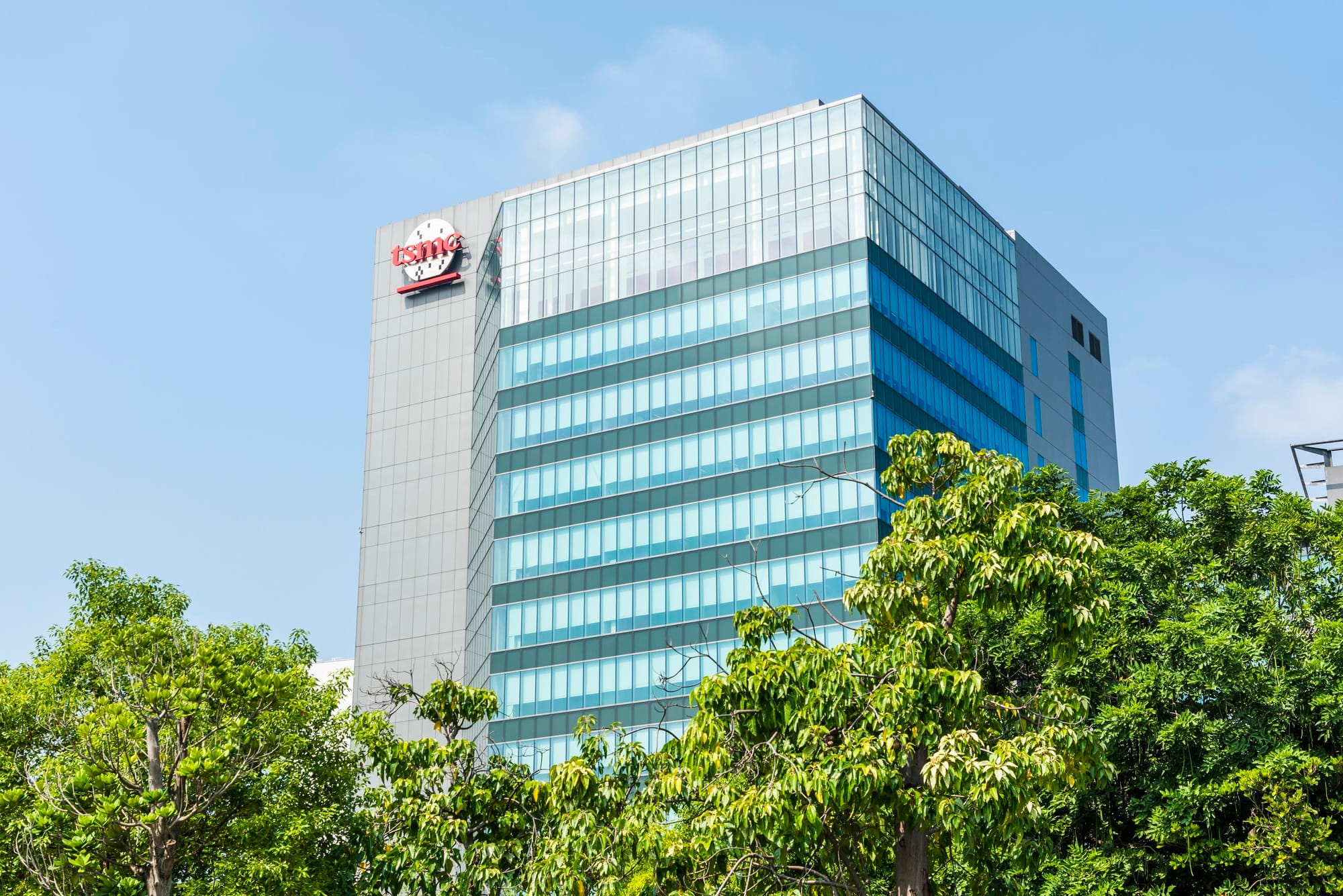
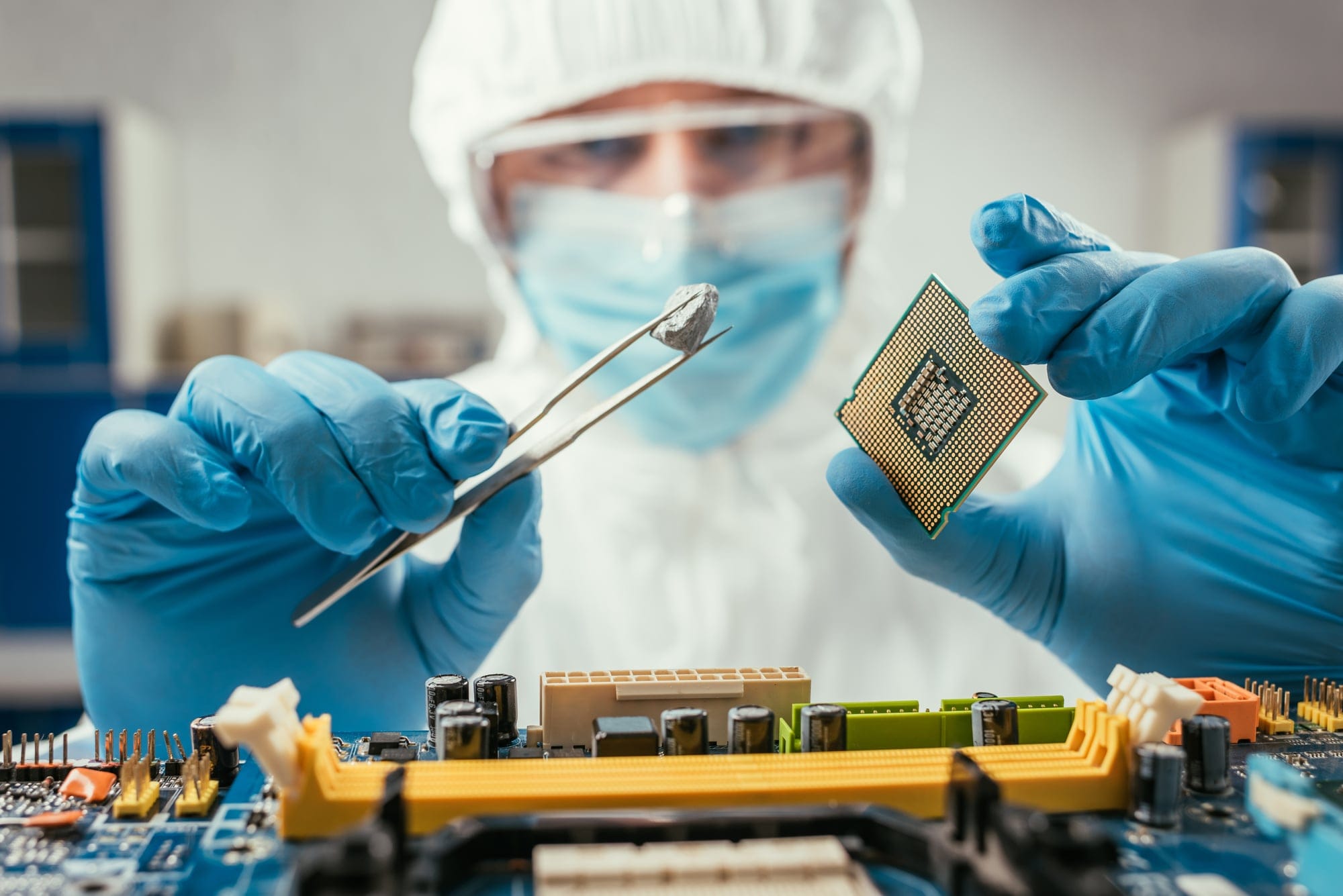
Social Factors That Impact TSMC
Social factors encompass cultural and societal influences that affect a company's operations. This section highlights how various social factors impact TSMC.
TSMC is a company that manufactures products that are impacted by technological advancements and innovation. Hence, technological literacy and education in society impact the quality of products' TSMC.
If people, in general, are more technologically aware and sound, then the workforce of TSMC would be more equipped and skilled. As a result, the products made by the company would be superior in quality.
Furthermore, the products of TSMC are used in different gadgets. For example, iPhones use chips made by TSMC. Suppose there is a shift in consumers' taste, and they start abandoning the use of iPhones. Apple will limit its purchase from TSMC. As a result, the company will generate less revenue.
Moreover, over the years, companies have started paying attention to the diversity of their workforce. They are recruiting skilled workers from different ethnicities and different countries.
Similarly, TSMC also employs workers from different ethnicities. This diversification helps TSMC gather the top, most skilled workers worldwide to work for it.
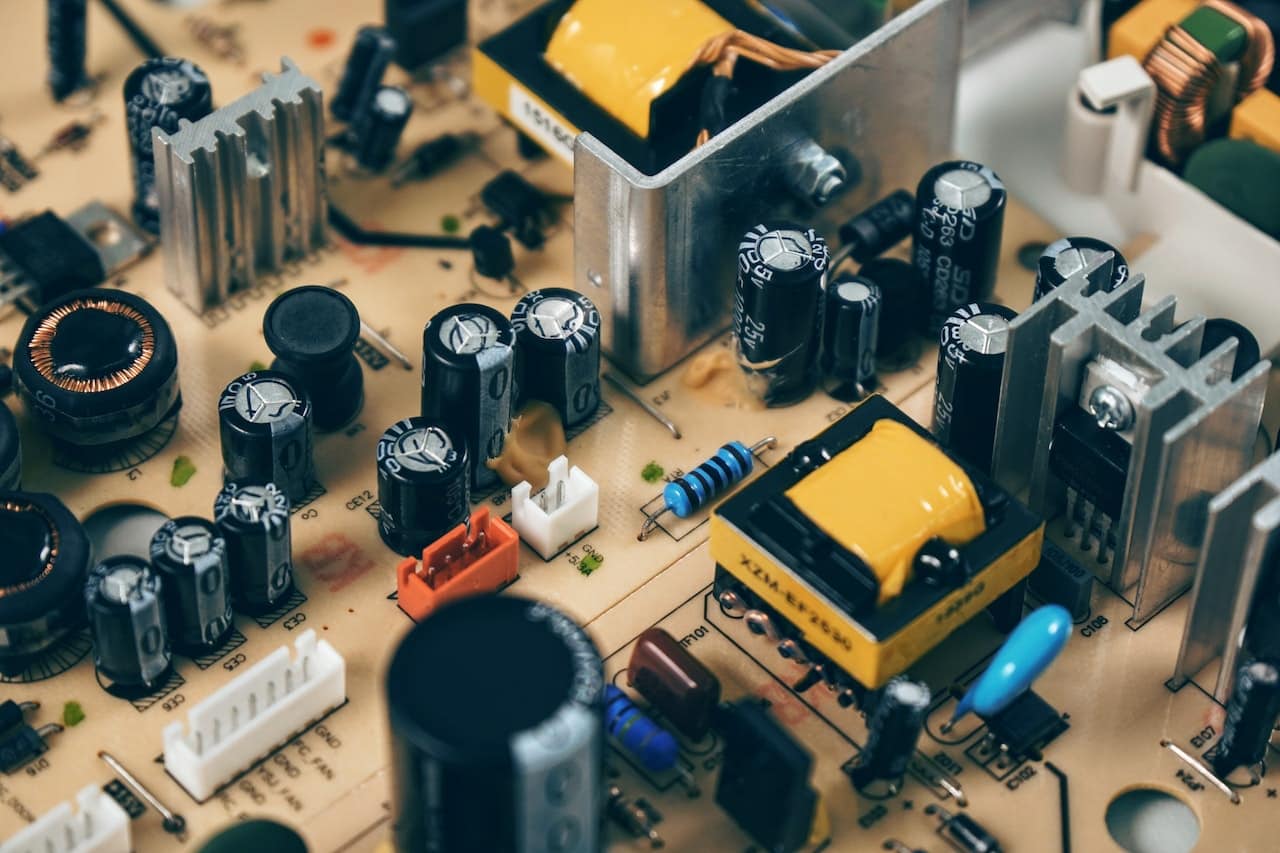
Technological Factors That Impact TSMC
Technological factors are the factors related to technology and innovation that affect the operations of different companies. In this section of the PESTLE analysis, we will discuss how different technological factors impact TSMC.
TSMC has always been technologically ahead of its competitors, so it has become the world's top semiconductor manufacturing company.
As the machines become more advanced due to technological advancements and more research is being carried out, TSMC can produce high-quality and low-power-consuming products.
TSMC is one of the companies that spend a significant amount of revenue on R&D. As a result of the R&D carried out by the company, TSMC adopts new technologies and manufacturing techniques that make it possible for TSMC to remain ahead of its competitors.
Furthermore, as technological development is taking place, new technologies such as artificial intelligence, 5G, and quantum computing are emerging. These advancements will help TSMC make its products more durable and energy efficient.
Besides that, currently, companies are adopting robotics in their manufacturing to increase their productivity and efficiency. TSMC can also adopt such practices to increase its productivity.
Legal Factors That Impact TSMC
Legal factors are the factors that are associated with the legal system of the country. Different legal factors have a different impact on the operations of TSMC.
TSMC is a global company that has to pay more attention to laws and the legal system than any other local company. One of the laws that have a great impact on the operations of TSMC is labor laws.
TSMC has to ensure that no labor in the company is treated unfairly. Moreover, the company has to ensure that the rights of minorities and workers belonging to different ethnicities are protected.
Suppose the company fails to comply with labor laws, TSMC may have to face penalties and bans, which will damage the reputation of TSMC and hurt the company financially.
Moreover, the data breach laws are also to be followed by TSMC, or else the company may face lawsuits. According to the data protection laws, TSMC is bound to keep its clients' data secret.
In case that data is leaked, the clients can take TSMC to court. This will damage the image of TSMC and damage the company financially.
Environmental Factors That Impact TSMC
Environmental factors are the factors that are associated with nature and natural calamities. Different environmental factors impact all companies. In this section, we will discuss how different environmental factors impact TSMC.
The manufacturing of semiconductors requires a lot of energy. This is why a lot of energy is used in the manufacturing process of semiconductors. Consuming so much energy causes a significant amount of fossil fuel to burn, which causes air pollution.
TSMC has to adopt renewable energy, or pressure groups might start targeting the company. Moreover, a lot of water is also used while manufacturing semiconductors. On the other hand, environmentalists are talking about water scarcity.
TSMC must apply water-efficient techniques to limit water use in manufacturing.
Besides that, the frequency of natural calamities is increasing significantly due to global warming. These natural calamities usually cause traffic blockages, which can cause disruption in the supply chain of TSMC.
Moreover, due to natural calamities, the infrastructure of TSMC may also be damaged. In this way, natural calamities can increase the costs of TSMC.
PESTLE Analysis of TSMC (Taiwan Semiconductor Manufacturing Company): Final Word
TSMC is the largest semiconductor manufacturing company globally, founded in 1987 in Taiwan. Despite its substantial size and success, various external factors impact the company's operations.
In this PESTLE analysis, we examined how political, economic, environmental, social, technological, and legal factors influence TSMC. By understanding these external factors, TSMC can adapt and thrive in an ever-changing business landscape.
To highlight those factors, we conducted the PESTLE analysis of TSMC. We examined how various external factors impact TSMC through the PESTLE analysis framework. If you found this article interesting and want to explore more PESTLE analysis examples, consider looking at additional case studies.










